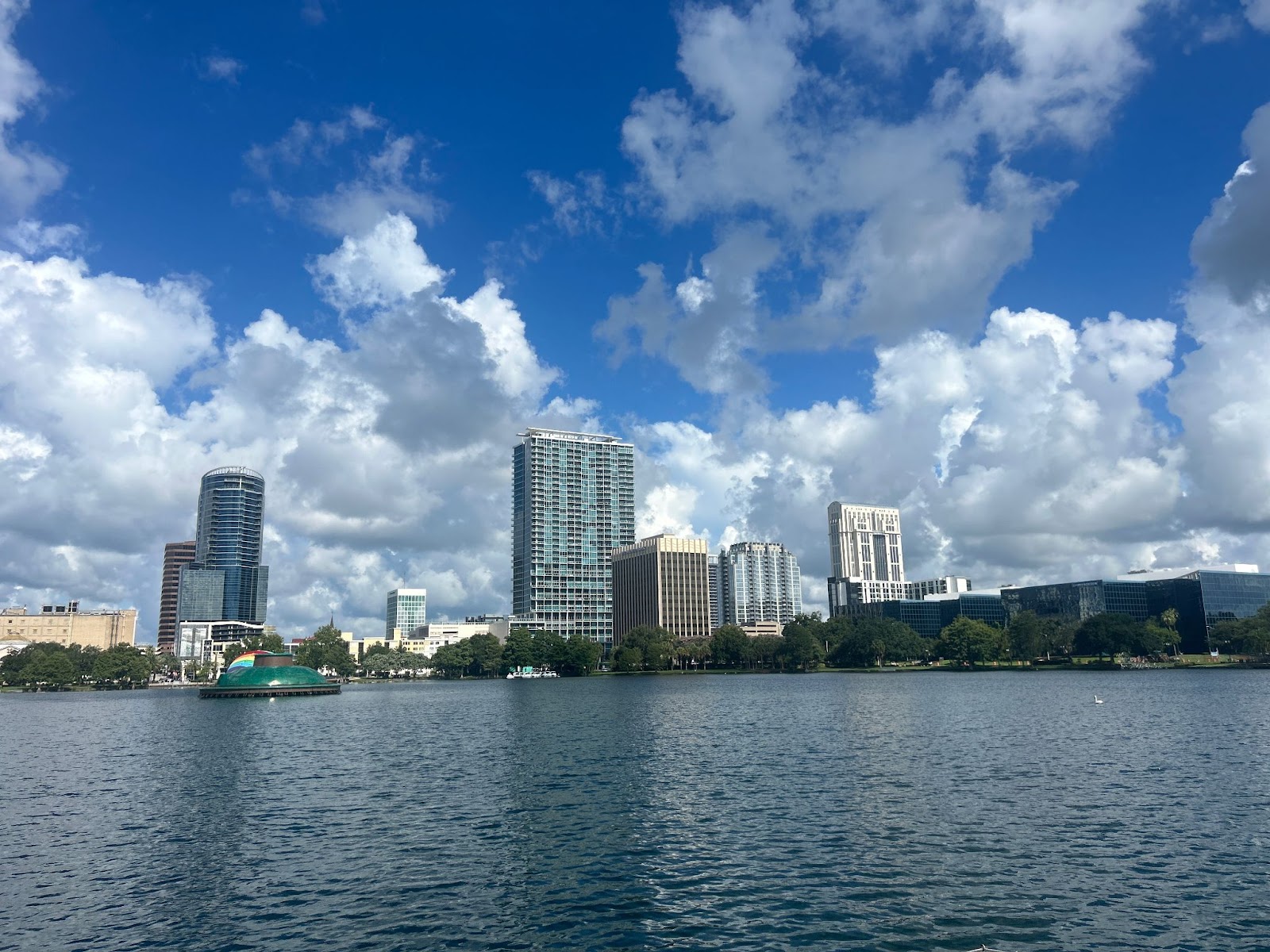How to Spot a Great Investment Property in Florida
Florida’s booming real estate market has long been a magnet for investors. From its pristine beaches and thriving tourism industry to its growing population and favorable tax laws, the Sunshine State offers countless opportunities for real estate investment. However, identifying a truly great investment property requires more than just a gut feeling. Whether you’re a seasoned investor or a newcomer to the market, this guide will help you spot a property with strong potential for returns.
Location, Location, Location
The adage holds true: location is everything in real estate. When scouting for investment properties in Florida, consider the following:
- Tourism Hotspots: Cities like Orlando, Miami, and Tampa attract millions of visitors annually. Properties near major attractions, beaches, or entertainment hubs can be lucrative short-term rental investments.


- Growing Areas: Look for regions experiencing population growth, such as Jacksonville or the Lakeland-Winter Haven area. New developments, improved infrastructure, and job opportunities often signal future demand.
- Accessibility: Easy access to highways, airports, and public transportation can make a property more appealing to renters or buyers.
- School Districts: Properties near top-rated schools are particularly attractive to families, which can lead to stable, long-term tenants.
Understand the Market Trends
Keeping a finger on the pulse of Florida’s real estate market is crucial. Analyze market trends to identify areas with high appreciation potential:
- Price Trends: Is the area’s average home price rising? Consistent appreciation is a strong indicator of a promising investment.
- Rental Demand: Research vacancy rates and rental prices. High demand and low vacancy rates suggest a healthy rental market.
- New Developments: Check for upcoming commercial or residential developments. These often lead to increased property values over time.
- Seasonal Considerations: Florida’s market can be seasonal. For instance, demand for vacation rentals peaks during the winter months when snowbirds flock to the state.
Assess the Property’s Condition
The condition of a property significantly impacts its investment potential. Start by hiring a professional inspector to evaluate the property’s structural integrity and uncover potential issues like foundation cracks, roof damage, or plumbing problems. Properties in need of minor cosmetic updates can offer excellent returns if purchased at the right price. Additionally, ensure that major systems, such as HVAC, electrical, and plumbing, are in good condition to avoid costly repairs down the line. Finally, consider curb appeal, as an attractive exterior can help draw tenants or buyers quickly.
Analyze the Numbers
Investment properties must make financial sense. Use the following metrics to evaluate a property’s profitability:
- Cash Flow: Calculate monthly rental income minus expenses (mortgage, taxes, insurance, maintenance, and management fees). Positive cash flow is essential.
- Cap Rate: Divide the net operating income (NOI) by the property’s purchase price. A higher cap rate indicates better potential returns.
- Cash-on-Cash Return: Compare the annual cash flow to the total cash invested. This metric helps gauge your return on investment.
- Appreciation Potential: Research historical price trends in the area to estimate long-term value growth.
Evaluate Rental Strategies
Florida offers multiple rental strategies, each with unique benefits. Short-term rentals are ideal for tourist-heavy areas like Miami or Orlando and can yield higher monthly income but require active management. Long-term rentals, on the other hand, provide steady, reliable income and demand less day-to-day involvement. Vacation homes allow you to enjoy the property personally while renting it out during peak seasons. Before deciding, ensure the area permits your preferred rental strategy, as some Florida cities enforce strict short-term rental regulations.
Research Local Laws and Regulations
Understanding the legal landscape is crucial to avoid unexpected hurdles. Key areas to research include:
- Zoning Laws: Ensure the property is zoned for your intended use.
- Short-Term Rental Regulations: Check for restrictions or licensing requirements in the area.
- Property Taxes: Florida’s property tax rates vary by county. High taxes can significantly impact profitability.
- Homeowners’ Associations (HOAs): If the property is in an HOA community, review their rules, fees, and restrictions.
Consider Insurance Costs
Florida’s weather from hurricanes to flooding, can lead to high insurance premiums. Before purchasing a property, obtain quotes for homeowners insurance, flood insurance (mandatory in designated flood zones), and windstorm insurance, which protects against hurricane damage and may require a separate policy. These costs can significantly impact your overall investment profitability, so factor them into your calculations.
Partner with Local Experts
Navigating Florida’s diverse real estate market is easier with professional guidance:
- Real Estate Agents: Work with agents specializing in investment properties. They can provide valuable insights and access to off-market deals.
- Property Managers: If you’re investing in rentals, a property manager can handle tenant relations, maintenance, and compliance.
- Contractors: Reliable contractors are essential for any renovations or repairs.
- Tax Advisors: A tax professional familiar with Florida’s real estate laws can help you maximize tax benefits.
Visit the Property in Person
While virtual tours and online research are helpful, nothing replaces an in-person visit. Walking through the property allows you to assess its condition, layout, and overall potential. Exploring the neighborhood provides insight into its amenities, safety, and vibe. This hands-on approach can reveal details that online listings might miss, helping you make a more informed decision.
Trust Your Due Diligence
Performing thorough due diligence minimizes risks. This includes:
- Title Search: Ensure the property has a clear title with no liens or disputes.
- Market Comparisons: Compare the property’s price to similar properties in the area to ensure you’re not overpaying.
- Rental Projections: Use platforms like AirDNA or Rentometer to estimate rental income.
- Professional Inspections: Beyond a general inspection, consider specialized inspections for pests, mold, or structural issues.
Think Long-Term
A great investment property should align with your long-term goals. Consider:
- Exit Strategy: Whether you plan to sell, rent, or hold, have a clear exit strategy.
- Portfolio Diversification: Balance your investment portfolio with different property types and locations.
- Market Cycles: Real estate markets fluctuate. Be prepared for market downturns and have a plan to weather them.
Look for Unique Opportunities
In Florida, unique investment opportunities abound. Fixer-uppers, for example, can offer significant equity growth after renovations, provided they are purchased at a discount. Multi-family homes generate income from multiple units on a single property, increasing cash flow. Vacation rentals near beaches or theme parks capitalize on Florida’s thriving tourism industry. Vacant land in growing areas is another option, offering long-term appreciation potential as development expands.
Spotting a great investment property in Florida requires a blend of market knowledge, financial analysis, and strategic planning. By focusing on location, understanding market trends, and performing thorough due diligence, you can identify properties that align with your investment goals. Whether you’re drawn to the state’s bustling tourist hubs or its tranquil suburban neighborhoods, Florida’s diverse real estate market offers opportunities for investors of all kinds. With the right approach, your investment can yield rewarding returns for years to come.

